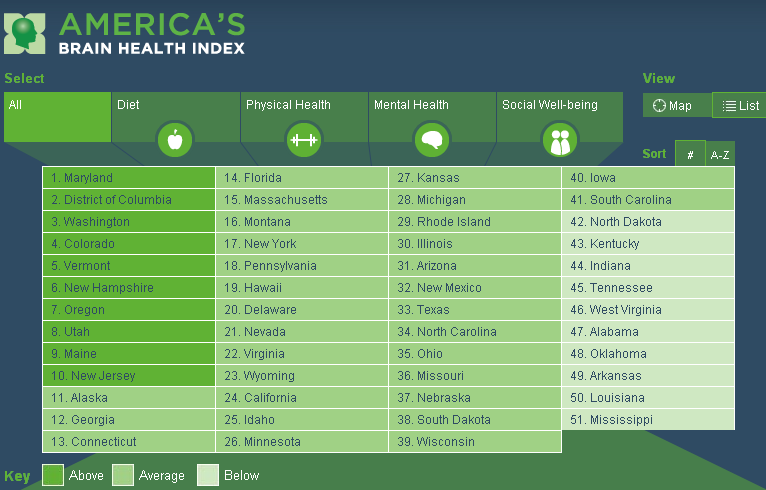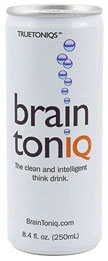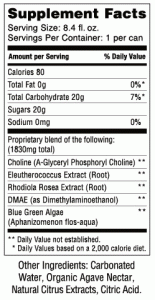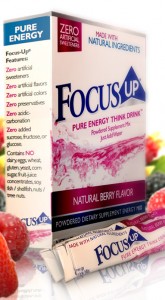Does High Fructose Corn Syrup Impede Learning?
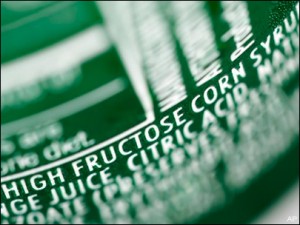 A recent study suggests that certain types of added sugar may in fact impeded learning and memory.
A recent study suggests that certain types of added sugar may in fact impeded learning and memory.
“Our findings illustrate that what you eat affects how you think,” said Fernando Gomez-Pinilla, a professor of neurosurgery at the David Geffen School of Medicine at UCLA and a professor of integrative biology and physiology in the UCLA College of Letters and Science. “Eating a high-fructose diet over the long term alters your brain’s ability to learn and remember information. But adding omega-3 fatty acids to your meals can help minimize the damage.”
This conclusion was reach on rat studies and has not been found for humans as far as I know. High fructose corn syrup shows up on the list of ingredients of many processed foods, soft drinks and other consumables. According to the research, the average American consumes 35 pounds of it per year!
Categories: Diet, Memory and Learning Tags:
Daily Practices for Optimal Cognitive Performance
 Lumosity, a well respected maker of brain training tools and games, recently shared the results of a massive (750,000 person) survey. They looked for specific daily practices that support optimal cognitive performance.
Lumosity, a well respected maker of brain training tools and games, recently shared the results of a massive (750,000 person) survey. They looked for specific daily practices that support optimal cognitive performance.
Here is what they found:
- 7 hours of sleep is much better than 5 or 10 especially when combined with the other practices.
- Exercise is key but your don’t need much. Cognitive performance peaks at about 2-3 workouts per week.
- Read at least 10 minutes everyday.
- Have 1-2 alcoholic drinks per day. Definitely avoid 3 or more.
- Play a musical instrument at least once per week.
Following these practices should improve memory and speed of mental processing.
Rarely do you see such specific advice on duration and quantity. Lumosity is able to get so specific when others are not because they have some 20 million registered users.
I am interested to hear from readers that decide to try this out.
Categories: Cognitive Decline, Diet, Lifestyle, Memory and Learning, Mental Focus, Music and Audio Tags:
Brain Health Food from the Cleveland Clinic
 The chief wellness officer from the Cleveland Clinic does a great job summarizing what we know about Food for Brain Health. He covers what to add to your diet, what to avoid and why as well as advice on other ways to stay brain healthy. While most of the food items have already been covered on the Next Brain Blog, there are a few surprises.
The chief wellness officer from the Cleveland Clinic does a great job summarizing what we know about Food for Brain Health. He covers what to add to your diet, what to avoid and why as well as advice on other ways to stay brain healthy. While most of the food items have already been covered on the Next Brain Blog, there are a few surprises.
For example, check out the list of items to the right. I bet you will find several new ones. For example, I did not know apple skins, Chia and tomatoes are health food for the brain. There is also a good discussion of things to avoid including trans fat, syrups, saturated fats and bleached flour.
We can eat to maintain brain health (avoid cognitive decline) but we can also eat to improve brain function and enhance cognitive performance. Eating the right things can make us smarter. I have cataloged over 12 examples here on the Next Brain Blog.
Interested to hear from readers that are using diet to maintain brain health or to boost brain power.
Categories: Cognitive Decline, Diet Tags:
More than 50% of Brain Health is up to You!
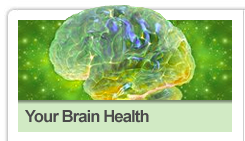 At least that is the conclusion from a review of the current state of research described on the Beautiful Minds website. The site is a educational effort by the National Center for Creative Aging and Martek Biosciences Corporation. They define brain health in terms of four dimensions:
At least that is the conclusion from a review of the current state of research described on the Beautiful Minds website. The site is a educational effort by the National Center for Creative Aging and Martek Biosciences Corporation. They define brain health in terms of four dimensions:
- The nourished mind
- The mentally engaged mind
- The socially connect mind
- The physically active mind
They have a quiz you can take to see where you stand and have even developed a brain health index for all 51 states.
As you can see Maryland is ranked #1 and Mississippi is ranked last. When you go to the site you can click on each state and get more details including an analysis of strengths and weaknesses.
All the tips they offer have been covered elsewhere on the Next Brain blog but it is useful to review them. The site also offers inspirational stories, a beautiful mind contest and resources for the healthcare professional. Check it out and let me know what is most useful.
Categories: Cognitive Decline, Diet, Lifestyle, Older Adult Tags:
Walnuts Boost Critical Thinking Skills By 11%
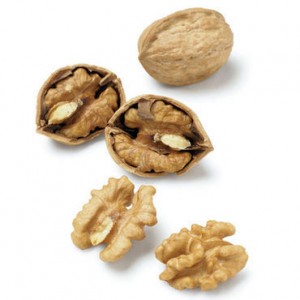 Researchers at Andrews University have found a potential connection between eating walnuts and improved critical reasoning skills in young adults. They published their findings in the British Journal of Nutrition. The bottom line:
Researchers at Andrews University have found a potential connection between eating walnuts and improved critical reasoning skills in young adults. They published their findings in the British Journal of Nutrition. The bottom line:
“Students consuming walnuts showed a significant improvement in inference after consuming one-half cup of walnuts daily for eight weeks,” says Pribis. “Walnuts will obviously not make you a critical thinker; this comes after years of studying. However, students and young professionals in fields that involve a great deal of critical thinking or decision-making could benefit from regularly eating walnuts.”
Significant improvement in this case means scoring 11% higher on a verbal inferential reasoning task. Walnuts were ground up and consumed by having two sliced of banana bread every day.
We have reported on additional claims that walnuts provide a cognitive boost elsewhere on the Next Brain blog
I am interested to hear from readers that use walnuts to improve brain function or cognitive performance. How many do you eat and how often? How do you consume them – raw or as an ingredient in some other food?
Categories: Cognitive Decline, College Student, Diet, Problem Solving Tags:
Evidence Mounts – Caffeine & Sugar Boost Cognitive Performance
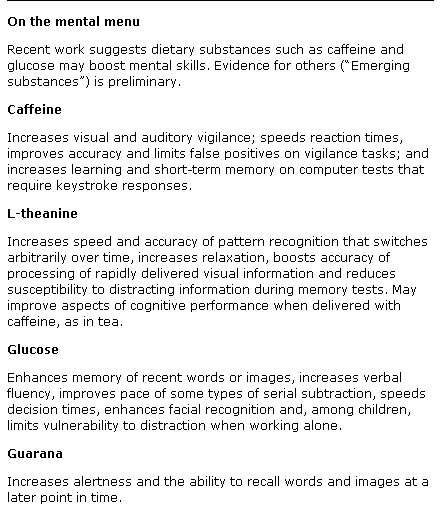 Science News just published an easy to read review article on what the latest scientific studies reveal about nutritional supplements and brain function. The evidence that certain supplements are brain boosters is really mounting. The “mental menu” shown to the right is taken directly from the article.
Science News just published an easy to read review article on what the latest scientific studies reveal about nutritional supplements and brain function. The evidence that certain supplements are brain boosters is really mounting. The “mental menu” shown to the right is taken directly from the article.
This means for example, a snack including caffeinated tea and a sugary treat should produce a short-lived but intense boost in mental energy and cognitive performance.
Categories: Diet, Executive Function, Memory and Learning, Mental Focus Tags:
Beet Juice as Brain Food For Older Adults
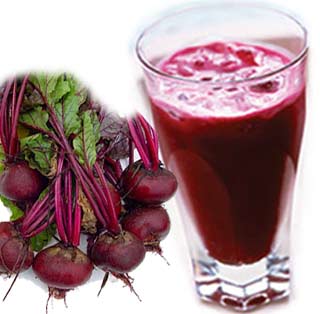 A study from Wake Forest University demonstrates for the first time that drinking beet juice (about 16 ounces a day for a week) increases blood flow to the brain in older adults. More specifically:
A study from Wake Forest University demonstrates for the first time that drinking beet juice (about 16 ounces a day for a week) increases blood flow to the brain in older adults. More specifically:
“The MRIs showed that after eating a high-nitrate diet, the older adults had increased blood flow to the white matter of the frontal lobes – the areas of the brain commonly associated with degeneration that leads to dementia and other cognitive conditions.”
Brains scans such as MRIs provide strong evidence. Beets are one food source high in nitrates others include celery, spinach and cabbage.
Interested to hear from readers that use beet juice or other high-nitrate food stuffs as part of their next brain diet.
Categories: Cognitive Decline, Diet, Memory and Learning, Older Adult Tags:
Drinks Spiked With Cognitive Enhancers
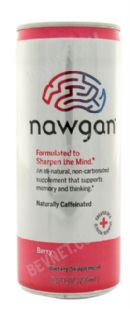 There are a growing number of drinks – flavored, caffenitated, organic and high-energy that have been specially formulated to improve your brain function and cognitive performance.
There are a growing number of drinks – flavored, caffenitated, organic and high-energy that have been specially formulated to improve your brain function and cognitive performance.
Take for example, the brand new product Nawgan. It was developed by a brain scientist, comes in berry flavor (caffeintate or not) and claims:
“The Nawgan formula supports memory and thinking skills in four ways. First, the lycopene in the beverage provides anti-inflammatory protection. Second, the natural vitamin E provides powerful anti-oxidant protection. Third, the alpha-glyceryl phosphoryl choline and citicoline (cognizin®) helps to increase acetylcholine levels in the brain (acetylcholine is critical for memory and thinking skills). Fourth, the citicoline also helps to provide structural support to brain cells, (phospholipids).”
You can buy it online for the price of an energy drink but must buy a case.
For a different approach, consider Brain Toniq that bills itself as botanical-based “think drink” designed to improve mental focus. An antidote to brain fog.
Another alternative is Focus Up, a prepackaged powder you can add to a bottle of water.
Interested to hear from readers that use drinks specially formulated to boost brain function and cognitive performance.
Categories: Cognitive Decline, Diet, Mental Focus Tags:
Nuts Known to Improve Cognition
 Posit Science, a leading provider of brain training software, has a interesting post on Nuts for Brain Health. They claim:
Posit Science, a leading provider of brain training software, has a interesting post on Nuts for Brain Health. They claim:
- Walnuts, almonds and hazelnuts have scientific studies that support claims for brain boosting effects
- Peanuts have preliminary evidence that support their role in brain health
- Other nuts that are often mentioned for brain health including pecans, chestnuts and cashews lack published scientific studies.
A useful summary for those considering including nuts in a Next Brain diet. Interested to hear from readers that eat nuts to improve brain function and cognitive performance.
Categories: Cognitive Decline, Diet, Memory and Learning Tags: vitamins
Total Brain Breakfast: Intensify Your Mental Focus
 WebMD, a respected source of information on health has a short slide show on Brain Foods that Help You Concentrate. While the slides cover topics already found in the Next Brain Blog including – caffeine, chocolate, fish, nuts, berries, avocados, whole grains and selected supplements – it is a great summary.
WebMD, a respected source of information on health has a short slide show on Brain Foods that Help You Concentrate. While the slides cover topics already found in the Next Brain Blog including – caffeine, chocolate, fish, nuts, berries, avocados, whole grains and selected supplements – it is a great summary.
It also talks about how they can work in combination. For example slide 11, Get Ready for a Big Day, states:
“Want to power up your ability to concentrate? Start with a meal of 100% fruit juice, a whole grain bagel with salmon, and a cup of coffee.”
Might not be your favorite combination for the total brain breakfast but there are many other options.
Interested to hear from readers that have customized one or more meal to achieve maximum brain function or cognitive performance. What it your total brain meal?
Categories: Diet, Lifestyle, Mental Focus Tags:

